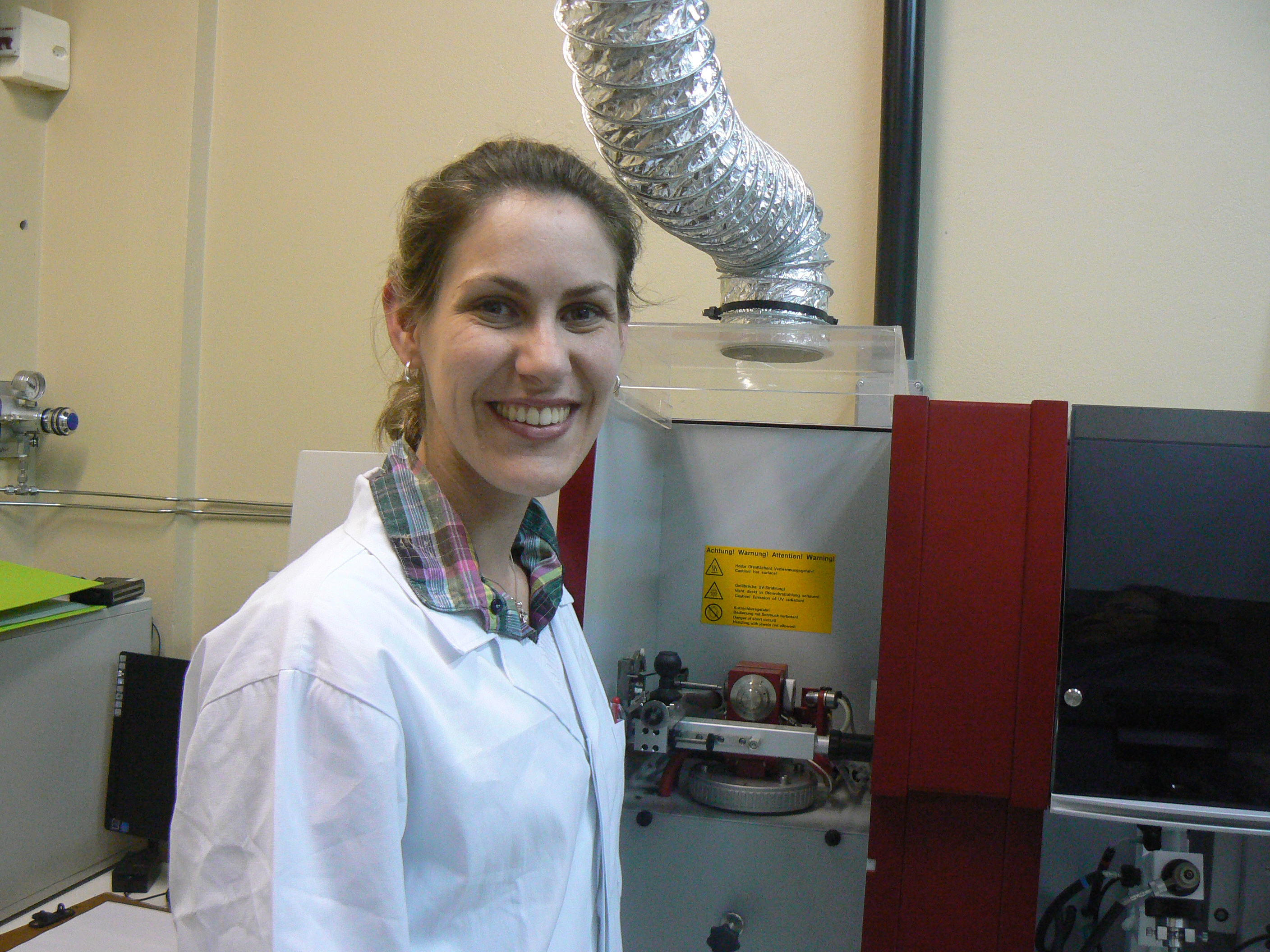We continue this section by interviewing Morgana B. Dessuy, a very young, just appointed Professor at Universidade Federal do Rio Grande do Sul (UFRGS), Porto Alegre, Brazil. Morgana works at the Laboratory of Trace Analysis, coordinated by Prof. Dr. María G.R. Vale.
Morgana Dessuy in her lab in Porto Alegre
Who or what inspired you to become a scientist?
At school I was always interested in Sciences. During high school, I decided to study Chemistry, after having read some articles about the role of a chemist in society.
Why did you choose your research group/University and what factors influenced your choice?
During my graduation, at Universidade Federal de Santa Maria, I was given the chance to work with different analytical techniques. At the end of my degree I decided to work with Atomic Absorption Spectrometry (AAS), which led me to do my TCC, which is a first supervised research work to conclude the graduation course, at the Laboratory of Trace Analysis at Universidade Federal do Rio Grande do Sul (UFRGS), coordinated by Prof. Maria Goreti R. Vale. This TCC work increased my interest in this technique even more; consequently I decided to take my Master and Doctorate in this area. Considering the fact that the Laboratory of Trace Analysis offers an adequate infrastructure for the development of my research, and that UFRGS is one of the best universities of Brazil, I chose to follow my studies there under the supervision and orientation Prof. Maria Goreti. During my PhD work I also had the opportunity to spend one year at the Institute of Analytical Chemistry of the Academy of Science of the Czech Republic in Prague under the supervision of Dr. Jiři Dědina in the frame of a sandwich program. This gave me the opportunity to work with other techniques, to know new people and a different culture, which contributed very much to increase my horizon, scientifically and personally.
Can you explain a bit the purpose of your current research activities?
My current research is based on the application of the AAS technique for the development of analytical methods. I am currently working on the development of analytical methods for the quantification of non-metals using High-resolution Continuum Source Graphite Furnace Molecular Absorption Spectrometry (HR-CS GF MAS). Besides this project, I have been developing another study related to the leaching of metals and metalloids from different food containers, particularly from pewter cups produced in Brazil.
How is a typical day in your lab?
I am not able to stay for a long time in the laboratory to make measurements, due to my recent activities as a Professor. Having to divide my time among giving classes, research and doing the paperwork, what I usually do is to plan the experiments and discuss the results with the students in the lab early in the morning and at the end of the afternoon when I finish my classes.
What common activities are organized in your research group?
Eventually we gather to make a barbecue or a happy hour to celebrate birthdays, presentation of final papers or the approval of a scientific project.
How do you search for scientific information? How do you manage your bibliography?
To make the bibliographic review I make use of the Web of Science. In addition, I usually access the websites of the main Journals in the field, to follow what is being published, and I save in folders, ordered by subject, those articles that I find relevant.
What are your views on JAAS? Which type of articles do you prefer? Do you miss some content?
JAAS is one of the most important Journals in the field of Atomic Spectrometry, being a reference for me since the beginning of my graduation. Nowadays, I wish there were more articles about sample preparation, as well as method development and applications involving AAS techniques, mainly using high-resolution continuum source AAS and high resolution continuum source molecular absorption spectrometry.
What do you like and dislike the most about your work?
I really like my work and I feel honored for being able to provide classes and carry out research activities simultaneously. I am happy with what I do. I do not really like the administrative paperwork, which is automatically inserted in my duties. Having to administrate money for my research and face bureaucracy and delay for the purchase of material/reagents is really annoying.
What do you expect to be doing in 5 years time?
I have recently reached a position, which I have aimed for a long time: the one of being a Professor at UFRGS. In five years time I hope to have acquired the potential to widen the structure of the Laboratory of Trace Analysis and to be satisfied with the research developed during this time. Besides that, I hope to contribute to the formation of graduate and post-graduate students.
What do you enjoy doing when you are not in the lab?
I really like going out with my friends or going to a park on the weekends. I also like reading a lot of books of general literature.
Thanks for sharing your views with us, Morgana, and congratulations on your recent position!











